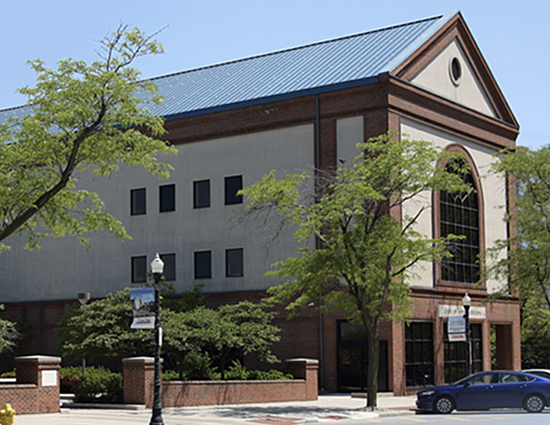Appeals court affirms case’s dismissal
DAVE MOSIER/independent editor
The Third Ohio District Court of Appeals has sided with a suspect then incarcerated in Indiana whose case was dismissed because prosecutors failed to meet requirements related to his constitutional guarantee of a speedy trial.

Tyler Marr, who had been indicted on seven counts of burglary by the Van Wert County Grand Jury on February 2, 2017, had his case dismissed in Van Wert County Common Pleas Court because county prosecutors failed to bring him to trial within 180 days of a handwritten letter he sent to the court and prosecutor’s office asking that his case be brought to trial in a timely manner.
Marr, who had been indicted for seven separate burglaries that had taken place between May 19 and July 12, 2016, sent a letter that was filed April 3, 2017, stating he was then incarcerated at Miami Correctional Facility in Bunker Hill, Indiana, on an unrelated charge, and noted his intention to get transportation to Van Wert to be arraigned on the charges or to have them dismissed.
“I would like to move forward with this case and bring about a resolution to it as soon as possible,” Marr wrote in the letter — a statement that was key to the trial court later dismissing the case as violating the speedy trial standard.
After receiving Marr’s letter, the Van Wert County Prosecutor’s office delivered forms requesting temporary custody of Marr, pursuant to Article IV of the Interstate Agreement on Detainers (IAD).
On November 17, 2017, Marr signed forms requesting that he be transferred to Van Wert for the purpose of bringing the untried indictment to final disposition.
In the appellate court decision written by Judge Stephen Shaw, he notes that it is unclear from the court record why there was a delay between then and when Marr was delivered to Van Wert on April 23, 2018.
Marr was finally arraigned on April 25, 2018, and pleaded not guilty to all seven charges. Attorney Scott Gordon was also appointed as legal counsel for him at that time.
On May 24 of this year, Gordon filed a motion on behalf of Marr to dismiss the case because he had not been brought to trial within 180 days of receipt of his April 3, 2017, letter, as required by Article III of the IAD.
On June 7, the prosecutor’s office filed a response to Marr’s motion to dismiss that contended that Marr’s letter did not satisfy the requirements of IAD provisions needed to invoke the speedy trial timeline.
The decision by the court of whether to dismiss the case revolved around whether Marr’s letter substantially complied with IAD requirements. If it did, the case would need to be dismissed.
After analyzing prior decisions related to the matter and later decided the following: “In this case there is no reasonable excuse from both April 3, 2017, or July 2017 for this defendant to have made available for trial and therefore this case is dismissed”.
The prosecutor’s office then filed this appeal, asserting that the trial court erred in dismissing the case and by finding that Marr’s letter complied with the IAD’s provisions.
Shaw’s decision noted that both parties to the appeal were in agreement that Marr’s 180-day speedy trial period begins to run when the man substantially complies with IAD requirements. The disagreement, then, is over whether Marr did comply with those requirements with his handwritten letter.
After reviewing other case law on the legal questions, Shaw noted that substantial compliance with IAD provisions has come to include a defendant doing “everything that could be reasonably expected” to comply with those provisions.
In his opinion, Shaw noted that the prosecutor’s office was incorrect in stating Marr’s letter was never properly filed with the court, since prosecutors had actually stipulated that the letter was received by the Van Wert County Common Pleas Court on April 3, 2017.
Shaw then noted: “It is disingenuous for the State to now suggest, multiple places in its brief, that the letter was not properly filed with the trial court.”
The opinion also stated that, while Marr’s letter never specifically included a reference to Ohio Revised Code section 2963.20, which would have more clearly invoked the speedy trial timeline, the appellate judges disagreed with the prosecution’s contention that the letter never contained a demand for a speedy trial. Appellate judges cited Marr’s statement that he wanted to move forward with the case and bring about a resolution as soon as possible as ample proof of his intentions to be tried in a reasonable timeframe, and found that the letter did actually comply with speedy trial provisions.
“Based on the record before us, we cannot find that the trial court’s determination that Marr’s letter constituted substantial compliance under R.C. 2963.30, and that Marr’s speedy trial rights thereunder were violated, was erroneous,” Shaw wrote in his decision overruling the prosecutor’s office appeal.
Judges John Willamowski and Vernon Preston also concurred with the opinion.
POSTED: 12/24/18 at 9:08 am. FILED UNDER: News







